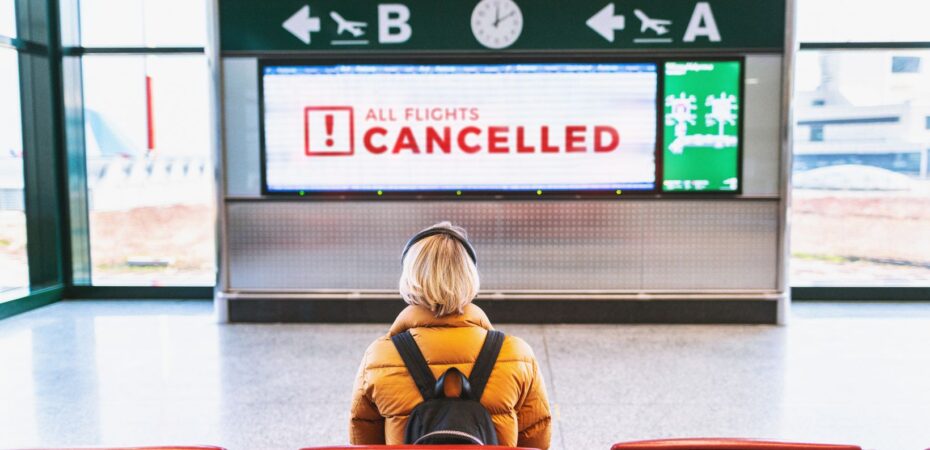Flight cancellations are an unfortunate reality for travelers, and when it comes to flights to and from the UK, understanding your rights and how to claim compensation can make a significant difference. This guide explores the intricacies of flight cancellations, focusing on the legal framework, eligibility criteria, and the steps passengers can take to secure the compensation they are entitled to.
Legal Framework: EU Regulation 261/2004
One of the primary regulations governing flight cancellations and compensation in the UK is EU Regulation 261/2004. Despite Brexit, this regulation has been retained in UK law, ensuring that passengers departing from the UK or arriving on a UK or EU airline continue to enjoy robust protection.
Under this regulation, passengers are entitled to compensation if their flight is canceled unless they were informed of the cancellation at least 14 days in advance or if the airline can prove that the cancellation was due to extraordinary circumstances. These circumstances include severe weather, security risks, political instability, or strikes by third parties.
Compensation Criteria
For passengers to be eligible for compensation, certain conditions must be met:
- Notification Period: If passengers are informed of the cancellation less than 14 days before the scheduled departure date, they may be eligible for compensation.
- Flight Origin and Airline: The flight must either depart from an EU airport (which includes the UK airports) or be operated by an EU airline arriving in the EU.
- Extraordinary Circumstances: The airline must not be able to demonstrate that the cancellation was due to extraordinary circumstances beyond their control.
Compensation Amounts
The cancelled flight compensation amounts are determined by the flight distance and the length of the delay caused by the cancellation:
- Short flights (under 1,500 km): Passengers are entitled to €250.
- Medium flights (1,500 to 3,500 km): Passengers can claim €400.
- Long flights (over 3,500 km): Passengers are eligible for €600.
However, if the airline offers an alternative flight that meets specific time criteria, the compensation can be reduced by 50%.
Additional Passenger Rights
In addition to monetary compensation, passengers have the right to:
- Refund or Re-routing: Passengers can choose between a full refund or an alternative flight to their destination.
- Care and Assistance: Airlines are obliged to provide meals, refreshments, accommodation (if necessary), and transport between the airport and the accommodation.
Steps to Claim Compensation
Claiming compensation for a canceled flight involves several steps:
- Gather Information: Collect all relevant documents, including the booking confirmation, cancellation notice, and any communication from the airline.
- Contact the Airline: Submit a formal claim to the airline’s customer service department, providing all necessary details and documentation.
- Use Compensation Services: If the airline is unresponsive or denies your claim, consider using compensation services like AirHelp, which can handle the process on your behalf for a fee.

- Escalate the Claim: If the airline still refuses to compensate, passengers can escalate the claim to the relevant national enforcement body in the UK, such as the Civil Aviation Authority (CAA).
Common Challenges and Tips
Navigating flight cancellations and compensation claims can be complex. Here are some common challenges and tips to overcome them:
- Documentation: Always keep copies of all travel-related documents and correspondence with the airline. This includes boarding passes, emails, and receipts for expenses incurred due to the cancellation.
- Persistence: Airlines may initially deny claims or delay responses. Persistence and patience are crucial. Keep following up on your claim and escalate if necessary.
- Know Your Rights: Familiarize yourself with the rights and regulations under EU Regulation 261/2004. Being informed empowers you to challenge the airline’s decisions effectively.
- Extraordinary Circumstances: Be aware that airlines often claim extraordinary circumstances to avoid paying compensation. However, not all such claims are valid. If you believe the airline’s justification is incorrect, seek legal advice or assistance from compensation services.
Post-Brexit Changes
While Brexit introduced uncertainties regarding air passenger rights, the UK has maintained the provisions of EU Regulation 261/2004.

This means that, for the time being, passengers flying to and from the UK continue to enjoy the same protections and compensation entitlements as before. However, it’s advisable to stay updated on any future changes to UK regulations that might affect these rights.
Conclusion
Flight cancellations can be a significant inconvenience, but understanding your rights and the compensation process can alleviate some of the stress involved. Passengers flying to and from the UK are protected under EU Regulation 261/2004, which ensures they can claim compensation for cancellations that are not due to extraordinary circumstances. By being informed, organized, and persistent, passengers can effectively navigate the compensation process and secure the benefits they are entitled to.


 By
By 





